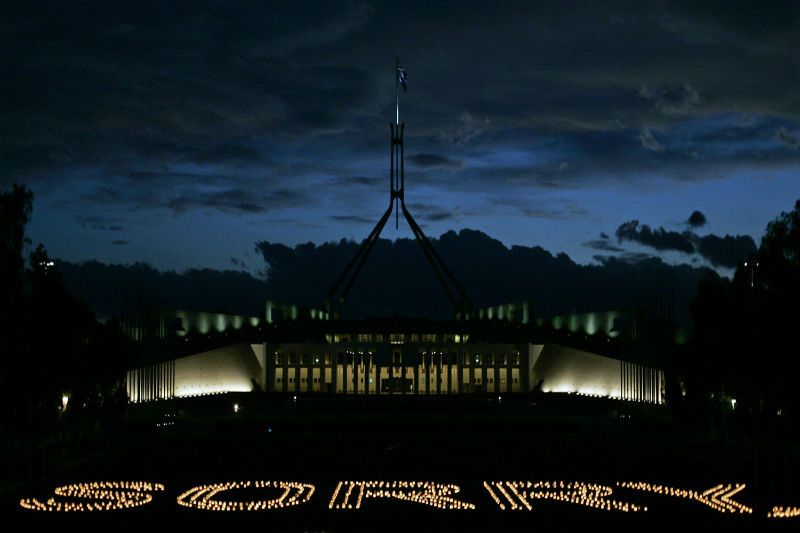The Apology made by then Prime Minister Kevin Rudd to the Stolen Generations on 13 February 2008 seems to belong to a different age. We must now view it through the lens of the failure of the Referendum on the Indigenous Voice to Parliament. The Apology, however, also points to the shape of the future relationship between the descendants of the First Peoples and of later comers and to the spirit that must animate its building.

Even a year ago those of us who were not Indigenous could with some confidence view the path that wound from the Apology to the reconciliation advocated in the Uluru Statement of the Heart as one of some progress. There had been growing signs of respect and more widespread knowledge of the history of the dispossession of the First Peoples and its effects.
There was less tolerance of racial abuse in sport and other areas of public life. It had become increasingly common to acknowledge the Traditional Owners of the Land. Indigenous Australians called on to speak at these events no longer came as guests but as hosts. A significant number of Indigenous Australians were entering the professions and the arts, led programs in Community Organisations, were elected to government and worked in the media.
After the Referendum it is proper to ask whether that sense of progress was illusory. Although the conduct of the Referendum revealed legitimate differences of opinion about the wisdom of the constitutional change it embodied and confusion about what it involved, it also revealed a level of denial of the unique place of the descendants of the First Peoples in Australia and a reluctance to address the lasting effects of their dispossession. It called into question the commitment, for example, to reduce the destructive incarceration of Indigenous children and to consult Indigenous communities about decisions that affect them. The rejection of the Indigenous Voice to Parliament raised the question of what value and hearing would be given to any Indigenous voice on anything.
In such a climate of doubt the anniversary of the Apology takes us back to the rock on which the relationships between Indigenous and other Australians must be built. The Apology was significant because it embodied respect. It also acknowledged a moral code that defined the relationships between government and Indigenous Australians, and the acceptance by both parties that this code had been violated. It implied, too, a pledge to show respect in future relationships. The respect embodied in the apology was based on the common and equal humanity shared by both parties, which lay deeper than differences based on religion, race and wealth.
In the Apology the Prime Minister spoke on behalf of all Australians and with the support of the Leader of the Opposition in recognising that Governments acted wrongly in removing Indigenous children from their parents. The removal had been dictated by the disrespectful assumption that the children, their parents and their families were of a lesser human worth, and so deserving of lesser respect, because of their race. This disrespect caused lasting damage to the children and families both because of the forced separation itself and also because of the humiliation that followed it.
'The Apology can never be unsaid. It can, however, be disregarded. For that reason it continues to be important. It is a measuring stick by which both Parliamentary behaviour and the treatment of Indigenous Australians can be judged.'
Because the removal implied contempt for people of a supposedly lesser breed, it was of great significance that the Prime Minister made the Apology in person to representatives of the Stolen Generations as his equals. In apologising he accepted responsibility for the actions of Government, the injury suffered by its victims and their descendants, and the duty of the Government and all Australians to ensure that all Australians are treated equally, regardless of race and history. The acceptance of the Apology by Indigenous representatives opened the path to reconciliation.
The Apology can never be unsaid. It can, however, be disregarded. For that reason it continues to be important. It is a measuring stick by which both Parliamentary behaviour and the treatment of Indigenous Australians can be judged. At the time it highlighted the disrespect underlying the election-driven Intervention that preceded it and the subsequent humiliating and disempowering measures directed against Indigenous communities.
The dignity, seriousness and non-partisan spirit of the Apology also stands in judgment over the rancorous disregard of Parliamentary conventions, lack of seriousness and courtesy so often displayed and so widely criticised in subsequent years. Though not driven directly by racially biased ideology, the disproportionate rate at which Indigenous children are removed from their mothers, Indigenous children are incarcerated, and decisions are made without proper consultation with Indigenous communities, indicates an institutional lack of respect.
The anniversary of the Apology reminds us that all of us Australians must constantly remind ourselves of our history of dispossession and discrimination against our First Peoples. We must also address the continuing consequences for Indigenous Australians of this history. The Apology reminds us that it is possible and encourages us to believe that we can do this well if we set our minds and hearts on it.
.
Andrew Hamilton is consulting editor of Eureka Street, and writer at Jesuit Social Services.
Main image: (Getty images)